Israel Foils Iranian Espionage Attempt
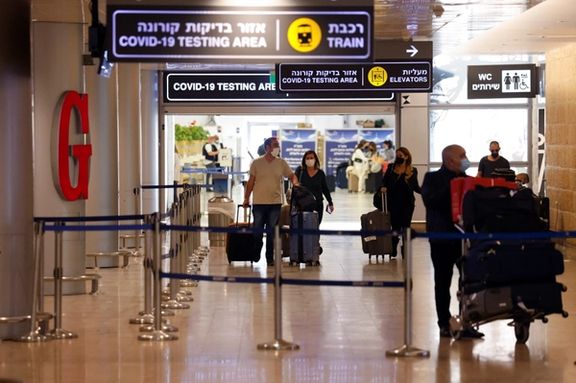
Israel's domestic intelligence agency, Shin Bet claimed on Friday to have successfully thwarted an Iranian espionage operation.

Israel's domestic intelligence agency, Shin Bet claimed on Friday to have successfully thwarted an Iranian espionage operation.
A Jewish Iranian individual was apprehended upon entry into the country with a seemingly innocuous tissue box that concealed surveillance equipment.
The detained individual, who has family ties in Israel, confessed during interrogation at Ben Gurion Airport that he had been dispatched by Iranian security operatives to spy on Israeli targets. Discovered in possession of cellphones, power banks, and currency, the individual was denied entry and subsequently deported to Iran.
"The event is indicative of a broader Iranian campaign to establish espionage and terror networks within Israel," stated the Shin Bet in an official release.
Iran's mission to the United Nations in New York abstained from immediate comment on the matter to news agencies.
In response to queries regarding the deportation rather than legal prosecution of the suspect, a security official, speaking to Reuters, elucidated that the decision took into account various operational considerations. The agency assessed that the suspect had been coerced and driven by financial incentives. The official further noted that the legal viability of prosecution was deemed "low," given the individual's non-Israeli citizenship status.
The ongoing confrontation between Israel and Iran has spanned decades, characterized by mutual accusations of sabotage and conspiracy to assassinate.
The World Jewish Congress estimates that before the establishment of the Islamic Republic Iran was home to around 80,000 Jews. Subsequently, most emigrated from the country, still leaving behind what is believed to be the largest Jewish community in the Middle East, outside of Israel.
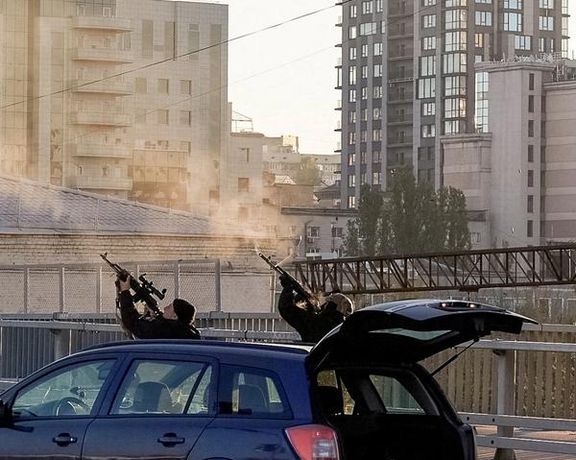
A group of European Union candidate countries have aligned themselves with a recent decision by the bloc to impose sanctions on Iran for its support for Russia's war on Ukraine.
On July 20, the EU Council adopted a decision introducing a fresh sanctions framework aimed at Iran's involvement in supporting Russia's military. This framework includes a ban on exporting components for Unmanned Aerial Vehicles (UAVs) from the EU to Iran, as well as provisions for potential travel bans and asset freezes targeting individuals connected to Iran's UAV program.
The candidate countries - North Macedonia, Montenegro, Albania, Ukraine, Republic of Moldova, and Bosnia and Herzegovina - along with EFTA members Iceland and Liechtenstein, have aligned themselves with this Council decision. This alignment signifies their commitment to adapting their national policies to reflect the provisions outlined in the decision.
The European Union commended these countries for their commitment and welcomes their alignment with the sanctions.
This alignment comes in the wake of a contentious international debate sparked by the delivery of Iranian-manufactured drones to Russia. This issue gained significant attention following Russia's invasion of Ukraine. While Iran initially refuted allegations of supplying Shahed suicide drones to Russia, Foreign Minister Hossein Amir-Abdollahian later admitted to the transfers in November 2022. He asserted that the deliveries occurred before the Ukrainian conflict commenced, and on a limited scale.
However, Ukrainian authorities strongly contested Iran's account, presenting substantial physical evidence suggesting ongoing and substantial drone deliveries from Iran.
In response to these allegations, the European Union, along with the United Kingdom, the United States, and Canada, implemented punitive measures against Iran.
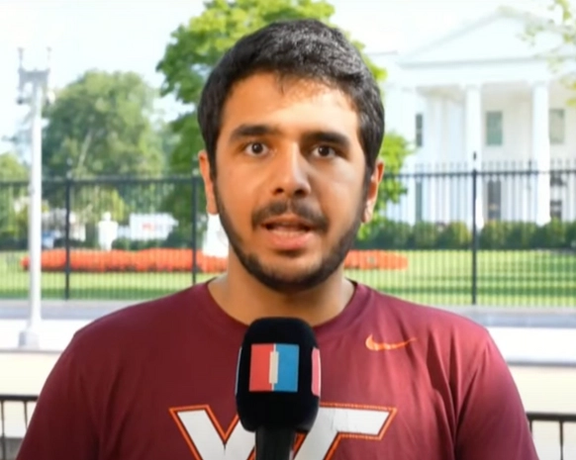
A family member of a US green card holder currently held prisoner in Iran voiced growing concerns over the uncertain fate of his father.
Iran and the United States announced Thursday that several US citizens held hostage by Tehran had been released from prison into house custody and may be freed in exchange for $6 billion frozen in South Korea.
In a solemn family sit-in outside the White House, Darin Dalili, Shahab Dalili's son, an Iranian citizen with permanent residence status in the United States who remains imprisoned in Iran, expressed his disappointment and concern regarding the US government's response to prisoners with green cards.
Dalili conveyed his disappointment with US Secretary of State Anthony Blinken's recent statement indicating a lack of knowledge about prisoners with green cards, emphasizing that his family had been in communication with the US State Department for years, striving to highlight the situation. He asserted that such a stance from the US government could be interpreted as yielding to pressures by the Islamic Republic.
Highlighting a discrepancy between policy and practice, Dalili pointed out the apparent contradiction with the Robert Levinson Law, which addresses the return of hostages, including US permanent residents. He underlined that despite this law, a green card holder remains imprisoned in Iran without clear resolution or intervention from US authorities.
Earlier, Secretary of State Anthony Blinken addressed the matter, saying that, aside from the five American citizens currently imprisoned in Iran, the US government lacks awareness of any other American citizens being held in the country.
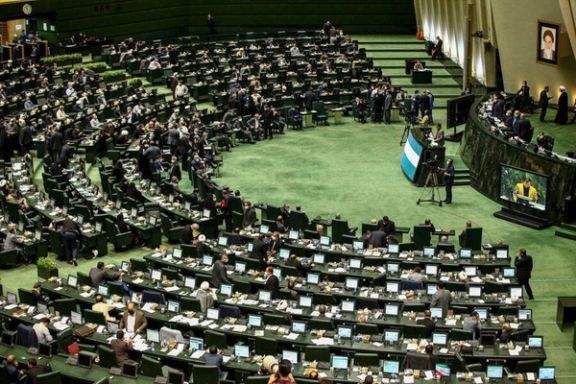
The main issue around Iran’s parliamentary elections in March is whether relatively moderate politicians will run, and if this can bring out disillusioned voters.
Many moderates have signaled their unwillingness to register as candidates, given their fear that hardliners using their political power will disqualify them, similar to what took place in 2020 and 2021.
However, a former speaker of the Parliament who is a close relative of Supreme Leader Ali Khamenei says reformists will take part in the election despite playing coy.
Gholam Ali Haddad-Adel told Young Journalist Club conservative website that "Some reformists are serious about what they say, but some are more realistic. They will act coquettishly, but they will take part in the elections anyway."
Whether he is right in his prediction, many Iranians see the elections as a ruse and will not go to vote for any regime faction. They have lost hope that the Islamic Republic can improve and solve their multiple grievances.
This is why Haddad-Adel called on Iranians to take part in the elections as a high turnout will lend the Islamic Republic authority and political leverage.
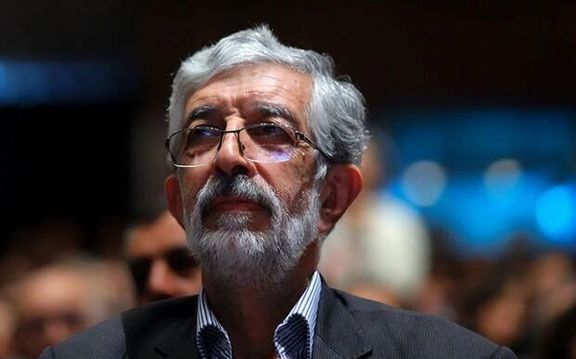
Also speaking to the press this week, former lawmaker Tayebeh Siavashi, a reformist political figure, said: "The Islamic Republic's existence depends on the people's participation in the elections. If the people refuse, the Islamic Republic will no longer exist, or its survival will be endangered."
However, she added that the current Majles (parliament) has disappointed the people as legislation that lawmakers approve is far from what voters are demanding. As evidence she pointed to recent amendments the lawmakers passed to the Election Law, which were mainly meant to ensure their re-election.
She further argued that the changes in the election law are unlikely to lead to economic progress or strengthening democracy and creating welfare for the nation. Siavashi reiterated that the amended election law simply serves the interests of one particular political group, presumably the ultraconservatives in Paydari Party who hold the majority of seats in the Iranian parliament. This, she said, threatens the regime's legitimacy.
Siavashi added that what is currently taking place regarding the upcoming elections is mainly meant to ensure the ultraconservatives' control of the government even at the expense of considerably lowering the turnout.
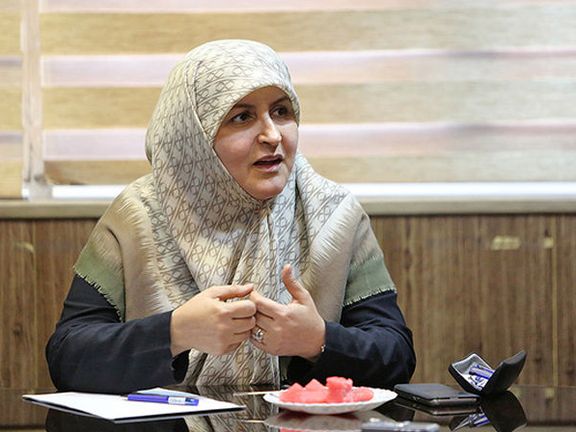
She said some of the bills recently approved or being discussed at the parliament such as the laws about restricting Internet access or harsh regulations to impose the compulsory hijab on Iranian women have caused a lot of protests, but the government does not pay any attention to the people's demands or even their protests.
Contrary to the reluctance of moderates and reformists, some conservatives such as Asadollah Badamchian, the leader of the Islamic Coalition Party are keen to take part in the elections, although his traditional conservative party has little chance of winning more than a few seats in the parliament.
Badamchian has said his party will nominate 400 candidates for the 290 seats in the parliament. This will effectively mean that some 110 of his party members have to compete against other members, even if the party wins all the seats of the parliament.
However, not all the conservatives are determined to take part in the elections. Ahmad Alirezabeigi, a lawmaker close to former President Mahmoud Ahmadinejad told the press on Wednesday that the former President is not planning to take part in the March 2024 elections either as a candidate or as a kingmaker to promote other candidates.
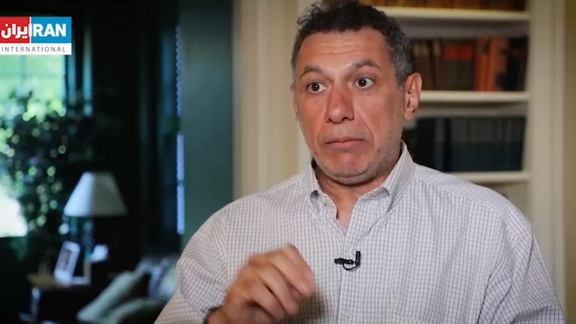
A former hostage in Tehran reveals details on the deal between Tehran and Washington to release US hostages in exchange for Iran’s frozen funds.
Nizar Zakka, a Lebanese who spent about four years in prison in Iran on trumped-up charges – like all foreign citizens held hostage in Iran – told Iran International that based on information he received from his sources the amount of money Iran is receiving as part of the deal is said to be over $10 billion, which includes the frozen funds in South Korea, Iraq and Japan.
He said there are conflicting reports on the amount of the money from Iranian and US sources, adding that it is not yet clear if all the frozen funds in Iraq, Japan and South Korea are included in the agreement. “It’s a lot of money,” he said, explaining that the funds will not go to the hands of the regime authorities, and are supposed to “go directly for humanitarian purposes through a third party.”
Iran has tens of billions of dollars worth of funds in foreign banks that it cannot access because of US sanctions. The funds are mostly kept in banks in South Korea ($7 billion), Iraq ($11 billion), Japan ($3 billion) as well as China and India where Iran is owed for shipments of crude and other oil products that took place before the United States pulled out of the 2015 nuclear deal and re-imposed full energy sanctions on Tehran in 2018 and 2019.
“We hope that this deal will put an end... this hostage business model that has been ongoing for so long,” added Zakka, who is the president of Hostage Aid Worldwide -- an NGO to support and help the release of people held hostage for unjust reasons.
The interview followed reports about the deal that will see five US citizens release from Iran in exchange for Iranian funds going from one restricted account to another, only be used for humanitarian purposes such as buying food or medicine.
US State Department spokesperson Matt Miller said, "We are relieved to learn that Iranian authorities have released five US citizens -- Siamak Namazi, Morad Tahbaz, Emad Sharghi (Shargi), and two individuals who at this time wish to remain private -- from prison to house arrest.” Iran's mission to the United Nations told Iranian state media that "Under the deal mediated by a third country, five Iranians jailed in the United States will be released and Iran's frozen funds in South Korea will be unblocked and transferred to Qatar."
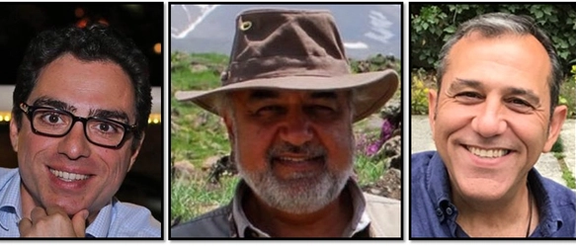
In reaction to US Secretary of State Antony Blinken's claim that he was not aware of any other Americans still detained in Iran, Zakka said "I personally had discussion and correspondence about (US permanent resident) Shahab Dalili with (former special envoy for Iran) Rob Malley and the State Department. “Everybody is very aware about Shahab's detention in Iran. I believe it may have skipped his (Blinken's) mind at a certain moment that he forgot Shahab Dalili's case exists."
"The Levinson Act does not differentiate between a US green card holder and a passport holder. We know of at least two cases of green card holders (Shahab Dalili and Jamshid Sharmahd) being charged exactly for cooperating with the US and being a US resident," he said, emphasizing that no hostages should be left behind like what happened for Siamak Namazi in 2016. “I hope this time everybody will be home, and we'll put an end to this hostage diplomacy.”
Highlighting that the Islamic Republic took two more hostages during the course of negotiations for this deal, he criticized a lack of deterrence in the deal. “Without deterrence, the Islamic Republic's hostage-taking is going to continue and happen again because they're making money out of this and have so much leverage over the West through these hostages."
Citing sources involved in the matter and close to power circles in Iran, Zakka said the deal "has something to do with the long-range missile agreement that will end next month, and this will put a pause on this as well. This will be good to calm the situation in the region especially now with Iran's supersonic missile."
If the information is right, Iran will not resume ballistic missiles tests after the expiry of the sanctions in October, will pause testing hypersonic missiles and will not transfer ballistic missiles to Russia. These issues are the points that France, Britain and Germany are using to justify retaining ballistic missile sanctions on Iran set to expire in October under the defunct 2015 nuclear deal. In early-July, the UN Security Council held a session on the Joint Comprehensive Plan of Action (JCPOA) and the implementation of resolution 2231, whose clauses are justifying keeping the sanctions in place.
Earlier in the day, an Israeli source, who wished to remain anonymous, revealed to Iran International's correspondent in Israel that the agreement between the US and the regime is not merely a tentative understanding but a comprehensive accord.
Emphasizing that the agreement carries significant ramifications, signaling a shift beyond conventional diplomatic engagements between nations, the source said the Israeli government is concerned about the expansion of the accord, like many other critics who believe the deal would embolden Iran in its hostage taking policy.
The informed source further elaborated that the agreement encompasses more intricate details, which have not yet been disclosed.
"The reason Prime Minister Benjamin Netanyahu has refrained from commenting on this agreement thus far is that he avoids acknowledging that, during his tenure, the United States and the Islamic Republic have reached an accord," the source stated.
His remarks came just hours before The Wall Street Journal reported that Iran has significantly slowed the pace at which it is accumulating near-weapons-grade enriched uranium and has diluted some of its stockpile, citing people briefed on the matter. "Iran has diluted a small amount of 60% enriched uranium in recent weeks and slowed the rate at which it is accumulating new material."
The WSJ said that US officials had hoped Tehran would stop accumulating 60% enriched uranium as one of a series of de-escalatory steps from both sides, which included the prisoners deal.
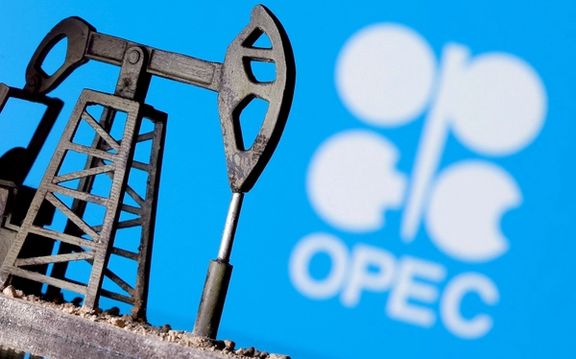
Latest figures released by OPEC reveal a significant discrepancy between Iran's recent claims about its oil production and the actual data.
The report was released on Thursday, a day after the National Iranian Oil Company (NIOC) Managing Director Mohsen Khojasteh-Mehr – a deputy oil minister -- claimed that the country's daily oil production would surge by 250,000 barrels to reach 3.5 million barrels by the end of summer, meaning that the current figure stands at 3.25 million barrels.
However, the latest OPEC statistics suggest that Iran's daily oil production amounts to only 2.828 million barrels, indicating a substantial gap of 422,000 barrels with the Islamic Republic’s figure.
Furthermore, OPEC's new figures highlight that Iran's oil production experienced an 11% growth in the first seven months of the current year, yet the country's oil price has plummeted by over 24%. Iran's daily oil production increased by 274,000 barrels until July, still falling short by a million barrels compared to the reported 3.8 million barrels it used to produce prior to sanctions imposed by the United States.
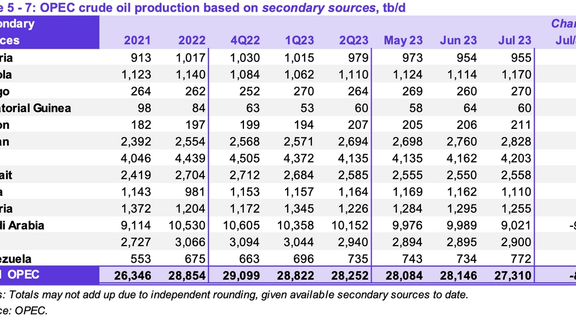
The backdrop of this production surge lies in the aftermath of the 2015 Joint Comprehensive Plan of Action (JCPOA) nuclear deal, which saw the lifting of international sanctions on Iran and a subsequent increase in revenues. Iran's oil revenues temporarily soared to $66 billion in 2017. However, this upward trajectory was disrupted after the United States withdrew from the JCPOA in May 2018, which led to renewed sanctions that intensified a year later.
As a result, Iran's oil exports faced a significant decline, falling to between $15 - $20 billion by 2020. The tide began to turn towards the close of that year after the election of US President Joe Biden, who expressed his intention to reinstate the JCPOA. China, in response, embarked on a trajectory of more oil imports from Iran.
Presently, China remains the main customers of the Iranian oil. Meanwhile, data from Kepler, a data analytics company that also tracks oil tankers, indicates that Iran's average daily oil and gas condensate exports to China during the first seven months of 2023 have been hovering around one million barrels per day, up from roughly 325,000 bpd in 2020 and just 160,000 bpd in August 2019, in the wake of tightened US sanctions.
While oil has been trading at around 75-82 dollars in the past several months, Iran International reported in December that Tehran provides huge discounts to China, charging as little as $37 per barrel. A report by The Wall Street Journal in July said Iran is exporting the highest amount of crude oil in five years, but it offers discounts of up to $30 per barrel.
No matter how many buyers or how much trade Iran manages to secure for its exports, it faces serious obstacles in bringing in the revenues and money transfers due to US banking sanctions, Mohammad-Hossein Malaek, who served as Tehran’s envoy for four years under former president Mohammad Khatami, told the Iranian Labour News Agency earlier in August.
The former envoy highlighted China’s purchase of Iranian oil never stopped no matter the status of US and international sanctions on the Islamic Republic, but the country faces serious obstacles to pay Iran for its crude, pushing Beijing to barter goods and services to with ally.